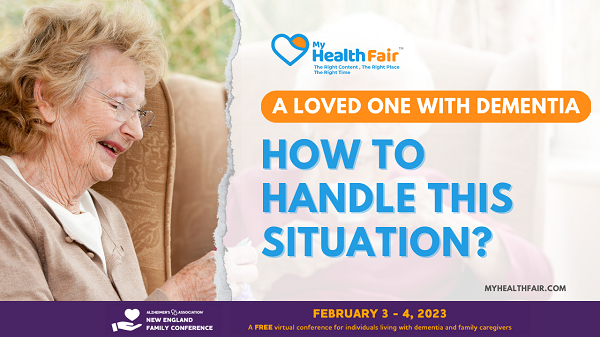A family member with dementia? Probably you are looking for advice on what to do, here are some tips on how to handle the situation.
Dementia is a general term used to describe a decline in cognitive function severe enough to interfere with daily life.
This syndrome affects memory, thinking and behavior in a progressive manner.
A family member with dementia is characterized primarily by changes in mood and behavior, and difficulty completing daily activities.
To know how to treat a person with dementia, we must first be sure that we are dealing with the symptoms of the early stages of dementia.
Some of the signs are as follows:
- Memory loss.
- Eating problems such as lack of appetite.
- Lack of personal hygiene.
- Confusion and disorientation.
- Communication difficulties.
- Problems in reasoning, solving problems or handling complex tasks.
- Behavioral changes or mood alteration.
- Increased aggressive or disinhibited behavior.
Family members are often the primary caregivers for people living with dementia.
Many families are at a loss when presented with the need to begin caring for their loved ones with dementia:
How should they act with a person with dementia? What care do they need and what will their future look like?
Caregiving can be emotionally and physically demanding and can affect the caregiver’s own health and well-being.

Care and support for all people affected
The Alzheimer’s Association works globally, nationally and locally to provide care and support for all people affected by Alzheimer’s and other dementias.
To help you more concretely manage the challenges of dementia and learn how caregivers can act in this situation, alzfamilyconference.org is inviting you to a free virtual conference in SPANISH on February 3-4.
Panelists include renowned Juan Carlos Urizar, MD, Brigham and Women’s Hospital, who will speak about managing hospital and emergency room visits.
Julie Brody Magid, PysD, will also speak on “Living with Cognitive Challenges: Tips and Strategies, Conversations with Caregivers,” among others.
Some of the lectures will be in English with simultaneous translation into Spanish.
FEBRUARY 3 – SPECIAL SESSION IN SPANISH FOR CAREGIVERS:
- Practical tips and professional advice on how to handle these situations
- Guidance on what to bring to visits, practical tips on how to interact with hospital staff and information on the most important medical forms
- People with dementia panel
- Living with cognitive challenges: tips and strategies
- Expressive therapy to relieve stress in people with dementia
FEBRUARY 4 – SESSIONS IN ENGLISH WITH SIMULTANEOUS INTERPRETATION IN SPANISH:
- Caregiver Panel
- Reducing Resistance to Caregiving: Personalized Support
- Creating a healthy and safe environment for a person with dementia
TO REGISTER click here bit.ly/laconferenciaALZ or call the 24/7 Helpline at 800.272.3900.
Learn more here:
Subscribe to our Newsletter to learn more about this and other events from our allies and visit our virtual health fair: https://myhealthfair.com/
Our source: Alzheimer’s Association
Disclaimer:
Information on the My Health Fair website should not be construed as professional advice or medical recommendations.Readers should direct any questions regarding personal health care to licensed physicians or other appropriate health care professionals.

